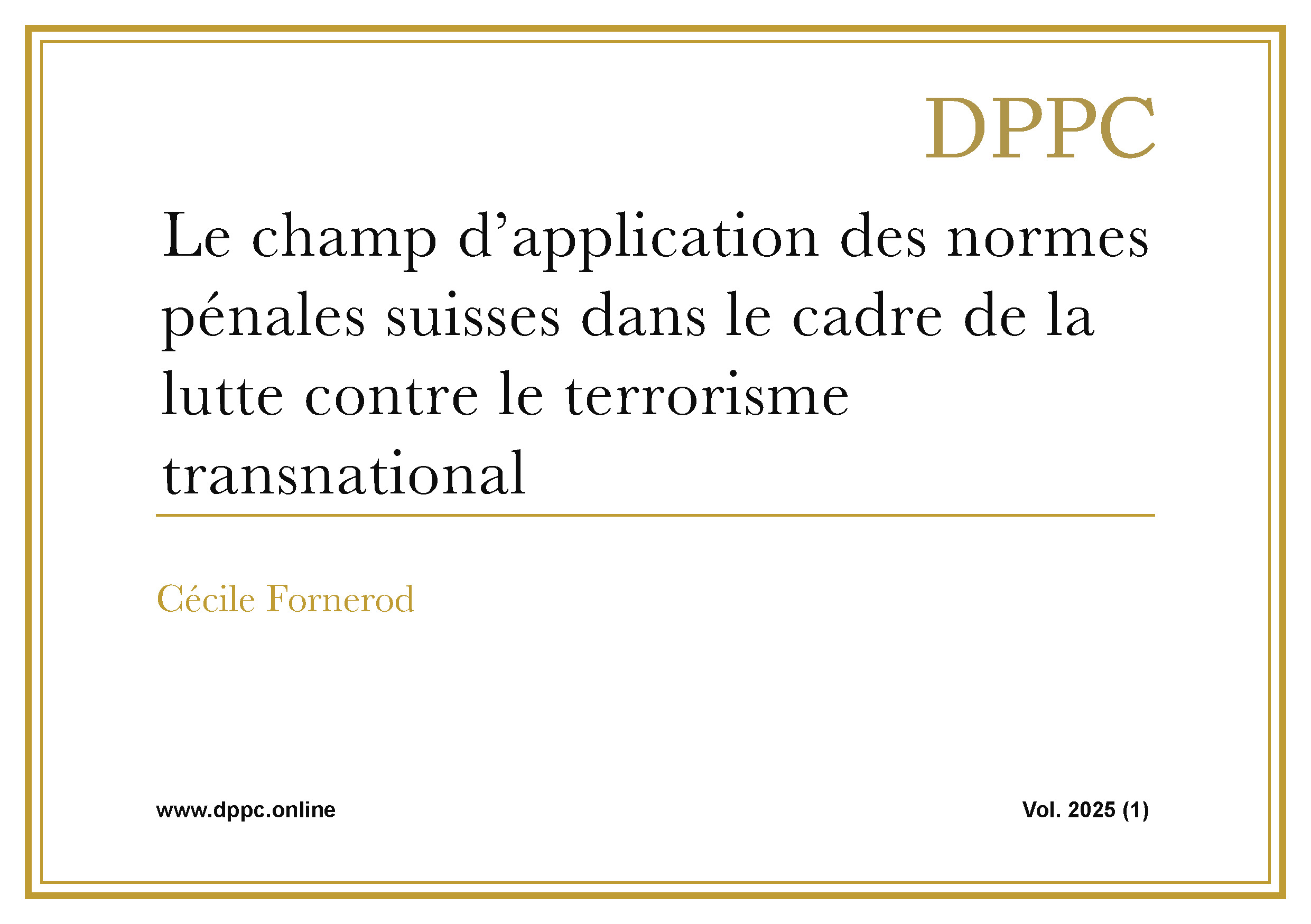Abstract
This bachelor’s thesis addresses the main issues related to the scope of Swiss criminal law in the fight against transnational terrorism. This is a relatively complex topic that has sparked debate in legal doctrine and case law.
In her paper, the student identifies and explains the criteria for establishing a connection to Switzerland and the specific legal bases, while presenting the preparatory work for the selected provisions in order to provide a historical perspective on the subject. She also analyses judgments handed down by the Federal Criminal Court and the Federal Supreme Court, placing them in context.
First, the author discusses the international framework and the anti-terrorism conventions to which Switzerland has acceded, highlighting the lack of a consensus definition of terrorism at the global level, which complicates the harmonisation of international efforts. A summary table of the main Swiss criminal law provisions on terrorism and the conduct they punish clarifies the provisions in force.
The spatial application of Swiss criminal law on terrorism is then the focus of the paper, with a discussion of conflicts of jurisdiction based on location, followed by an analysis of the spatial implications of the constituent elements of criminal law. Several examples from case law illustrate how Switzerland applies its criminal law in transnational contexts. The divergent or nuanced opinions expressed in legal doctrine are compared, combining theory and practical cases.
Finally, the student addresses the temporal application of Swiss anti-terrorism criminal law, taking into account the general principle of non-retroactivity of laws and the exception to this principle, the lex mitior. She examines the legislative changes that came into force in Switzerland in 2021 and 2023, highlighting how they have influenced the classification and sentencing of terrorist offences. These legislative reforms and examples of court decisions highlight the difficult balance to be struck between preventive repression and respect for the fundamental principles of the rule of law in a country that has been relatively lightly affected by terrorism compared to others.


